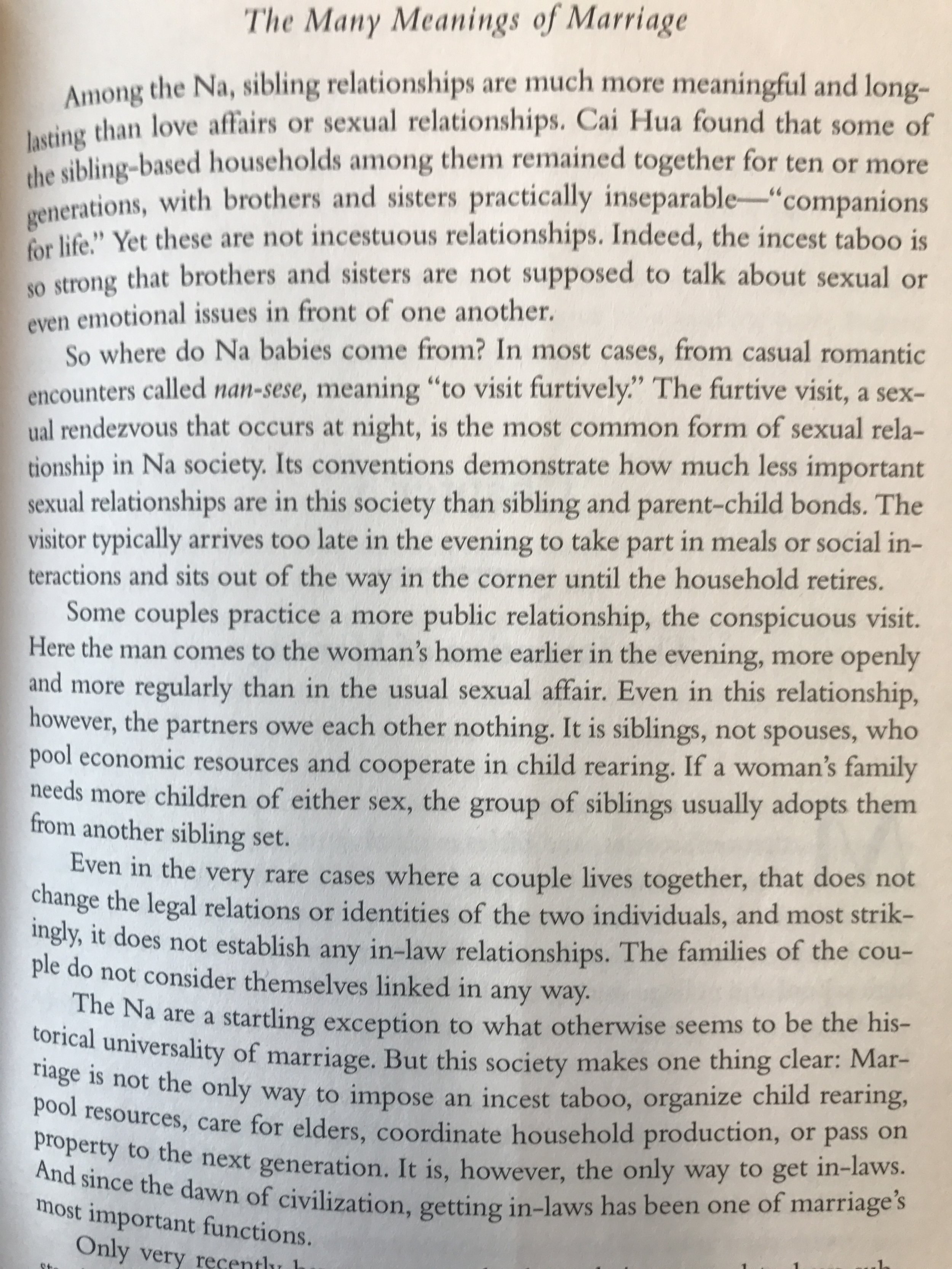Review: Marriage, A History, By Stephanie Coontz
Although my primary research interest is in the history and culture of surname changes at marriage around the world, I will be reading and writing about other books, articles, and other forms of media more focused on marriage culture and history generally as well. This is partly because I have yet to find any books actually focused on name changes specifically and partly because the subject is super interesting in its own right.
What is this book about?
This book traces the history and evolution of marriage throughout the world, with a bit more of an emphasis on Western societies in Europe and America, particularly toward the later chapters. It's incredibly well researched and takes a very in-depth, mostly chronological look at the purpose, laws, cultural significance, economic place, and religious status of marriage in the environment of each time period while weaving in quotes, anecdotes, and snippets about related topics from primary sources and literature. This style of weaving in an impressive amount of facts into each page works well for me, but I could see that this might become overwhelming to someone less incredibly nerdy.
Who would love this book?
If you're a history, trivia, or sociology lover, you will love this book. If you're someone who's engaged and wants to learn a ton about the institution into which you're entering, you may want to read this book. If you're engaged and you really don't want your starry eyed balloon dreams of marriage to be punctured by reality, don't read this. :)
Warning: this book is very academic in nature and quite dense. Though it does generally use colloquial language and you by no means need to be a college graduate to read it, we are talking 315 pages of probably size 10 font text. I really loved this book and it still took me a few weeks to get through. That being said, it really has informed my understanding of marriage thoroughly. I could write hundreds of posts using this book as a resource. I'm resisting the urge to do so (although you may get "tens" of posts instead).
My Favorite Parts
Is it possible to say that the entire book is my favorite? I've only had my copy for about a month and it's already lovingly bedraggled, filled with folded pages and highlights. Even writing this brief review has taken far longer than it should because in flipping back and forth trying to find my favorite parts, I've become reabsorbed in its pages and taken a few detours to write more blog posts on its contents and schedule them for the future. To be fair, I do have ADD and am very good at losing my train of thought and getting distracted by shiny things (thus, why I'm currently working in a Starbucks to try to get away from all the distractions at home), but this book is still insanely fascinating.
I do think the part of the book that has had the most impact on me is the emphasis on the economic nature of marriage. In the middle ages and Renaissance it wasn't seen so much as the entree into adulthood as something you entered in only after you had some economic steadiness. Some women even had to work to fund their own dowries. As a result, it was common for peasants to get married fairly late in life. Sometimes these marriages were even put off until after the female partner bore a child, so that her fertility and ability to provide future employees in the form of children was assured. Once married, the couple worked as partners together to make their household and prosper; women did tend to work out of the home (although honestly, the majority of men did too, until the industrial revolution), but the amount of work needed to run a household and perform necessary economic tasks like spinning, sewing, cooking, etc. meant that these contributions were quite valued. It was only in the Victorian ages and after that the concept of the "traditional male breadwinner" marriage really came about and women's work at home became devalued (Sidenote: SO much of what we consider "traditional" about marriage has existed for less than 200 years. SOOO MUCH. Honestly if you think it's a very old tradition, it's almost certainly not.).
The two entirely different chapters on marriage in medieval times - among nobility and among "the other 95 percent" - really offer an interesting look at how different these groups' goals and priorities were. It's also very enjoyable to read some of the discussion of the place of same-sex marriage in America at the time of this book's publication in 2005 and realize how far we've come now that it's legal nationwide. :)
Does it talk about marital surname changes at all?
Aside from a brief mention of Lucy Stone and her husband Henry Blackwell which doesn't even discuss her decision to keep her own name, no.
Amazon Link: https://www.amazon.com/Marriage-History-How-Love-Conquered/dp/014303667X





